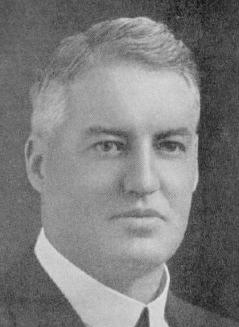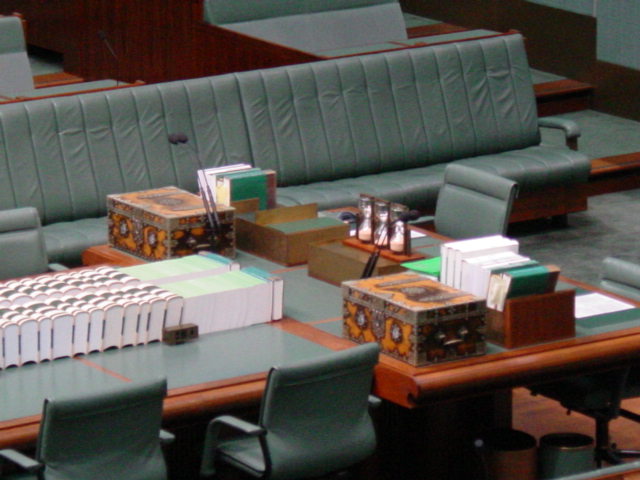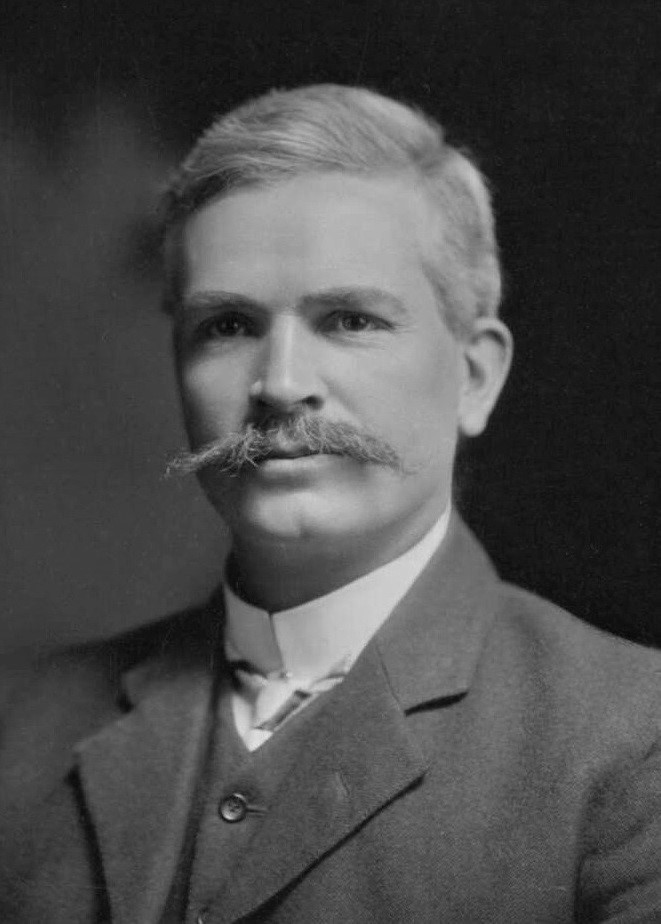|
James Fenton (Australian Politician)
James Edward Fenton (4 February 18642 December 1950) was an Australian politician. He is notable for having been appointed a cabinet minister by two governments of different political complexions, but resigning from both governments on matters of principle. His first resignation looms largely in history as that came with his political defection, whereas there was no defection with his second resignation. He was also acting as prime minister of Australia for several months in the early 1930s. Early life Born at Natte Yallock, near Avoca, Victoria, Avoca, Victoria, Fenton was educated at a local school. At 13 he became a printer's apprentice with the '' Avoca Mail'' and later became a compositor in the Government Printing Office in Melbourne, but lost his job in the 1893 depression. In 1887, he married Elizabeth Jane Harvey. He was editor of the ''Broadford, Victoria, Broadford Courier'' from 1894 to 1903, and managing director of the ''Co-operative Dairyman'' from 1904 to 1910 ... [...More Info...] [...Related Items...] OR: [Wikipedia] [Google] [Baidu] |
The Honourable
''The Honourable'' (British English) or ''The Honorable'' (American English; see spelling differences) (abbreviation: ''Hon.'', ''Hon'ble'', or variations) is an honorific style that is used as a prefix before the names or titles of certain people, usually with official governmental or diplomatic positions. Use by governments International diplomacy In international diplomatic relations, representatives of foreign states are often styled as ''The Honourable''. Deputy chiefs of mission, , consuls-general and consuls are always given the style. All heads of consular posts, whether they are honorary or career postholders, are accorded the style according to the State Department of the United States. However, the style ''Excellency'' instead of ''The Honourable'' is used for ambassadors and high commissioners. Africa The Congo In the Democratic Republic of the Congo, the prefix 'Honourable' or 'Hon.' is used for members of both chambers of the Parliament of the Democratic Repu ... [...More Info...] [...Related Items...] OR: [Wikipedia] [Google] [Baidu] |
Natte Yallock
Natte Yallock is a locality in the Australian state of Victoria. Natte Yallock is located in the Pyrenees Shire local government area, 200 km (or 120 miles) north-west of the state capital, Melbourne, and 90 km (or 56 miles) from the regional cities of Bendigo and Ballarat. At the 2006 census, Natte Yallock and the surrounding area had a population of 188. Buildings The locality does have a small primary school, which opened in 1874. The Pyrenees Shire Council has documented a number of significant buildings in the Natte Yallock area in the ''Avoca Heritage Study: 1864 - 1994'' - Volume 3. Football Natte Yallock shares an Australian rules football team with nearby Bealiba — the Natte Bealiba Swans — who compete in the Maryborough Castlemaine District Football League, and along with the Natte Bealiba Swans, there is the Natte Yallock cricket club and Natte Yallock tennis club. See also * Avoca, Victoria * Bung Bong, Victoria * Homebush, Victoria Homebus ... [...More Info...] [...Related Items...] OR: [Wikipedia] [Google] [Baidu] |
Ted Theodore
Edward Granville Theodore (29 December 1884 – 9 February 1950) was an Australian politician who served as Premier of Queensland from 1919 to 1925, as leader of the state Labor Party. He later entered federal politics, serving as Treasurer in the Scullin Labor government. Theodore was born in Adelaide, the son of a Romanian immigrant. He left school at the age of 12, and spent the next decade working his way around the country. He arrived in Queensland in 1906, and soon became involved in the labour movement. Theodore was elected to the Queensland Legislative Assembly in 1909, aged just 24. He was also elected state president of the Australian Workers' Union in 1913. Theodore became Treasurer of Queensland following Labor's victory at the 1915 state election. In 1919, Theodore succeeded T. J. Ryan as premier. His government pursued various interventionist economic policies, establishing a number of state-run enterprises and introducing new competition and labour market re ... [...More Info...] [...Related Items...] OR: [Wikipedia] [Google] [Baidu] |
Treasurer Of Australia
The Treasurer of Australia (or Federal Treasurer) is a high ranking official and senior minister of the Crown in the Government of Australia who is the head of the Ministry of the Treasury which is responsible for government expenditure and for collecting revenue. The Treasurer plays a key role in the economic policy of the government. The current Australian Treasurer is Jim Chalmers whose term began on 23 May 2022. The Treasurer implements ministerial powers through the Department of the Treasury and a range of other government agencies. According to constitutional convention, the Treasurer is always a member of the Parliament of Australia with a seat in the House of Representatives. The office is generally seen as equivalent to the Chancellor of the Exchequer in the United Kingdom or the Secretary of the Treasury in the United States or, in some other countries, the finance minister. It is one of only four ministerial positions (along with Prime Minister, Minister for Def ... [...More Info...] [...Related Items...] OR: [Wikipedia] [Google] [Baidu] |
Prime Minister Of Australia
The prime minister of Australia is the head of government of the Commonwealth of Australia. The prime minister heads the executive branch of the Australian Government, federal government of Australia and is also accountable to Parliament of Australia, federal parliament under the principles of responsible government. The current prime minister is Anthony Albanese of the Australian Labor Party, who became prime minister on 23 May 2022. Formally appointed by the Governor-General of Australia, governor-general, the role and duties of the prime minister are not described by the Constitution of Australia, Australian constitution but rather defined by Constitutional convention (political custom), constitutional convention deriving from the Westminster system. To become prime minister, a politician should be able to Confidence and supply, command the confidence of the House of Representatives (Australia), House of Representatives. As such, the prime minister is typically the leader o ... [...More Info...] [...Related Items...] OR: [Wikipedia] [Google] [Baidu] |
Imperial Conference
Imperial Conferences (Colonial Conferences before 1907) were periodic gatherings of government leaders from the self-governing colonies and dominions of the British Empire between 1887 and 1937, before the establishment of regular Meetings of Commonwealth Prime Ministers in 1944. They were held in 1887, 1894, 1897, 1902, 1907, 1911, 1921, 1923, 1926, 1930, 1932 and 1937. All the conferences were held in London, the seat of the Empire, except for the 1894 and 1932 conferences which were held in Ottawa, the capital of the senior Dominion of the Crown. The 1907 conference changed the name of the meetings to Imperial Conferences and agreed that the meetings should henceforth be regular rather than taking place while overseas statesmen were visiting London for royal occasions (e.g. jubilees and coronations). List of conferences Notable meetings Originally instituted to emphasise imperial unity, as time went on, the conferences became a key forum for dominion gov ... [...More Info...] [...Related Items...] OR: [Wikipedia] [Google] [Baidu] |
Great Depression
The Great Depression (19291939) was an economic shock that impacted most countries across the world. It was a period of economic depression that became evident after a major fall in stock prices in the United States. The economic contagion began around September and led to the Wall Street stock market crash of October 24 (Black Thursday). It was the longest, deepest, and most widespread depression of the 20th century. Between 1929 and 1932, worldwide gross domestic product (GDP) fell by an estimated 15%. By comparison, worldwide GDP fell by less than 1% from 2008 to 2009 during the Great Recession. Some economies started to recover by the mid-1930s. However, in many countries, the negative effects of the Great Depression lasted until the beginning of World War II. Devastating effects were seen in both rich and poor countries with falling personal income, prices, tax revenues, and profits. International trade fell by more than 50%, unemployment in the U.S. rose to 23% and ... [...More Info...] [...Related Items...] OR: [Wikipedia] [Google] [Baidu] |
Tariff
A tariff is a tax imposed by the government of a country or by a supranational union on imports or exports of goods. Besides being a source of revenue for the government, import duties can also be a form of regulation of foreign trade and policy that taxes foreign products to encourage or safeguard domestic industry. ''Protective tariffs'' are among the most widely used instruments of protectionism, along with import quotas and export quotas and other non-tariff barriers to trade. Tariffs can be fixed (a constant sum per unit of imported goods or a percentage of the price) or variable (the amount varies according to the price). Taxing imports means people are less likely to buy them as they become more expensive. The intention is that they buy local products instead, boosting their country's economy. Tariffs therefore provide an incentive to develop production and replace imports with domestic products. Tariffs are meant to reduce pressure from foreign competition and reduce th ... [...More Info...] [...Related Items...] OR: [Wikipedia] [Google] [Baidu] |
1929 Australian Federal Election
The 1929 Australian federal election was held in Australia on 12 October 1929. All 75 seats in the House of Representatives were up for election, but there was no Senate election. The election was caused by the defeat of the Stanley Bruce-Earle Page Government in the House of Representatives over the ''Maritime Industries Bill'', Bruce having declared that the vote on the bill would constitute a vote of confidence in his government. With senators having fixed six-year terms, the terms of those senators elected in 1926 were not due to expire until 1932. Under the Constitution of Australia, no election for their replacement could occur more than a year prior to their terms expiring, except in the case of a double dissolution; since the constitutional conditions for a double dissolution did not exist, it was not possible to hold a half-Senate election in 1929. This was the first Commonwealth election for the House of Representatives only. In the election, the incumbent Nationalist-C ... [...More Info...] [...Related Items...] OR: [Wikipedia] [Google] [Baidu] |
Victoria (Australia)
Victoria is a state in southeastern Australia. It is the second-smallest state with a land area of , the second most populated state (after New South Wales) with a population of over 6.5 million, and the most densely populated state in Australia (28 per km2). Victoria is bordered by New South Wales to the north and South Australia to the west, and is bounded by the Bass Strait to the south (with the exception of a small land border with Tasmania located along Boundary Islet), the Great Australian Bight portion of the Southern Ocean to the southwest, and the Tasman Sea (a marginal sea of the South Pacific Ocean) to the southeast. The state encompasses a range of climates and geographical features from its temperate coastal and central regions to the Victorian Alps in the northeast and the semi-arid north-west. The majority of the Victorian population is concentrated in the central-south area surrounding Port Phillip Bay, and in particular within the metropolit ... [...More Info...] [...Related Items...] OR: [Wikipedia] [Google] [Baidu] |
Australian House Of Representatives
The House of Representatives is the lower house of the bicameral Parliament of Australia, the upper house being the Senate. Its composition and powers are established in Chapter I of the Constitution of Australia. The term of members of the House of Representatives is a maximum of three years from the date of the first sitting of the House, but on only one occasion since Federation has the maximum term been reached. The House is almost always dissolved earlier, usually alone but sometimes in a double dissolution of both Houses. Elections for members of the House of Representatives are often held in conjunction with those for the Senate. A member of the House may be referred to as a "Member of Parliament" ("MP" or "Member"), while a member of the Senate is usually referred to as a "Senator". The government of the day and by extension the Prime Minister must achieve and maintain the confidence of this House in order to gain and remain in power. The House of Representatives c ... [...More Info...] [...Related Items...] OR: [Wikipedia] [Google] [Baidu] |
1910 Australian Federal Election
The 1910 Australian federal election was held in Australia on 13 April 1910. All 75 seats in the House of Representatives, and 18 of the 36 seats in the Senate were up for election. The incumbent Commonwealth Liberal Party (the result of a merger between the Protectionist Party and the Anti-Socialist Party) led by Prime Minister Alfred Deakin was defeated by the opposition Labour Party, led by Andrew Fisher. The election represented a number of landmarks: it was Australia's first elected federal majority government; Australia's first elected Senate majority; the world's first Labour party majority government at a national level; after the 1904 Chris Watson minority and Fisher's former minority government the world's third Labour party government at a national level; the first time it controlled ''both'' houses of a bicameral legislature; and the first time that a prime minister, in this case Deakin, was defeated at an election. It also remains the only election in Australia's ... [...More Info...] [...Related Items...] OR: [Wikipedia] [Google] [Baidu] |






.png)


